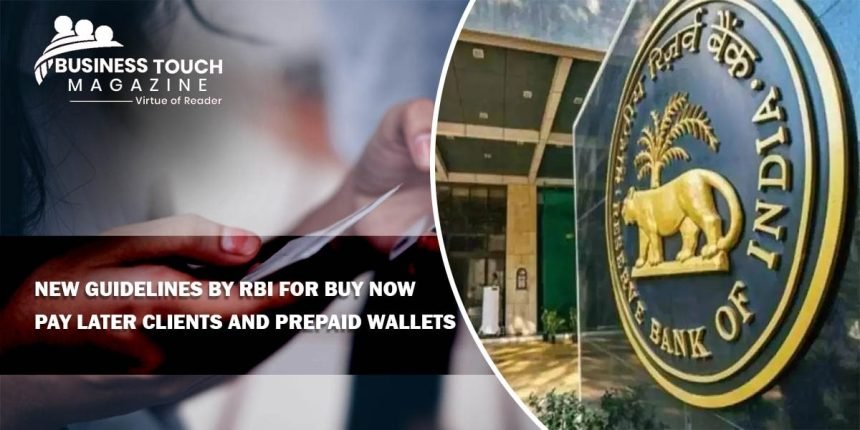On Monday, June 20, the Reserve Bank of India issued a notice prohibiting non-bank institutions or fintech businesses, including many of the “buy now, pay later” services, from loading credit lines onto Prepaid Payment Instruments (PPI) such as wallets and prepaid cards.
According to the central bank, “The PPI-MD does not allow loading PPh via credit lines. PPh may only be loaded from a PPI-MD account.” Stopping such a practise immediately should be the goal. The Payment and Settlement Systems Act, 2007, has measures for penalising non-compliance with certain requirements.
Prepaid Payment Instruments Master Direction (PPI-MD) is referred to as such in this RBI notice. Only cash, debit, credit, and bank accounts may be put into PPIs, including prepaid wallets and cards, according to the PPI-MD released by the PBI. The central bank of India regulates the institutions that issue PPIs in India, therefore one PPI may be deducted from another PPI or other payment instrument. In addition, the sum is specified in Indian Rupees by the top-level directive.
What is Prepaid Payment Instrument or PPI?
Here, you’ll find your wallet applications like PayTm, Google Pay, PhonePe, Preecharge, and so on. A prepaid payment instrument is one that is used to make purchases, perform financial transactions, permit remittances, and so on, all in exchange for the value stored in it, as defined by the Reserve Bank of India (RBI) Prepaid cards and vouchers are all examples of this kind of payment device.
United States Postal Service (UPS) is used to put money into these wallets. Transferring money across wallets is also possible. Apps were permitting transactions that violated the rules by filling the device with a line of credit acquired from any non-bank financial institution (NBFC). Some neobanks, wallet-linked “buy now pay later” businesses, and some other fintech firms were breaking the PPI-MD from the central bank by obtaining credit lines from banks and NBFCs to fill up wallets and cards. As reported by The Economic Times, Macquarie Capital Securities issued a fresh notice to prohibit these PPI licence holders from abusing the laws, according to a note by Macquarie Capital.
What is an NBFC?
Non-Bank Financial Corporations, or NBFCs, are financial institutions that don’t operate like banks.
What is the line of credit?
To put it another way, a bank’s established a maximum borrowing limit on a customer’s account, enabling them to borrow as much as they want, anytime they want. A lump-sum loan may be considered, but you only have to pay back the amount you’ve really utilised.
What these fintech companies were doing wrong?
Prepaid cards and wallets are offered by several fintech businesses in India in partnership with banks and NBFCs. As a result, these businesses were taking out loans in the names of their clients from banks and non-bank financial institutions (NBFCs). These firms were also breaking the RBI’s PPI-MD, which prohibits companies with a PPI licence from offering credit.
Why did RBI release this new notification?
Customers seeking for a loan via these buy-now, pay-later services aren’t subjected to a rigorous Know Your Customer (KYC) check, as previously noted. An individual may apply for a loan and have a credit loaded into their prepaid wallet by completing the minimal KYC requirements of providing their PAN card and Aadhaar card.
While asking for a loan or credit, a thorough KYC is carried out. Banking and credit card businesses do a wide range of background checks on their consumers before giving over the money. As a result, the default rate might be significantly greater in cases of buy-now-pay-later services due to inadequate screening.
Additionally, some applications or services are said to have issues with credit reporting, which might pose a difficulty for individuals seeking a loan or institutions that are issuing the loan.
Customers’ true credit history would be hidden if a purchase now, pay later provider failed to disclose a default, causing other banks and credit card firms to approve the loan and putting the consumer under more financial stress. In addition, some businesses fail to disclose positive payments, which lowers credit ratings and makes them seem less creditworthy.




